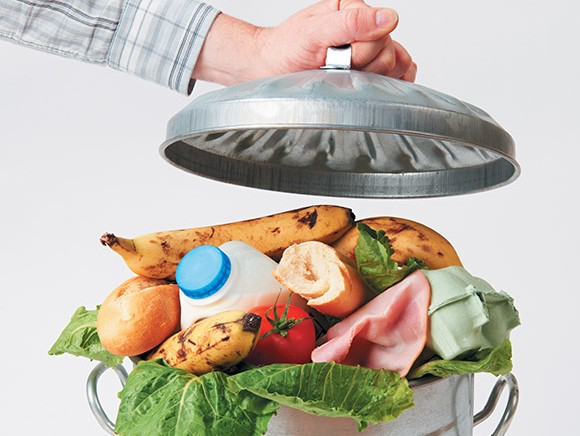
Over the past years, a large number of food manufacturers and retailers have worked with researchers from Wageningen UR Food & Biobased Research and Top Institute Food & Nutrition (TIFN) to explore the area of raw materials efficiency and waste streams. ‘De Verspillingsfabriek’ (The Waste Factory) in Veghel recently hosted a presentation of the results of these public-private partnerships (PPPs).
Companies can improve the efficiency of their chains through better collaboration and by embedding sustainability in their operational decision-making. This enables a further reduction in food and packaging waste, according to the results of these partnerships. There are also numerous opportunities to utilise residual flows in the manufacture of new products and companies can stimulate consumers to produce less waste.
The reduction of food waste and better utilisation of residual flows is a top priority within the ‘Alliantie Verduurzaming Voedsel’, an alliance which unites members of the industry in improving the sustainability of the agrifood chain. That’s why the alliance launched the CARVE project as a PPP in conjunction with Wageningen UR Food & Biobased Research in 2015. In addition to presentation of the results so far, two new projects within CARVE were also announced: Lamb Weston/Meijer is working together with Wageningen UR Food & Biobased Research this year to explore which new applications can be developed for by-products from potato processing, and Duynie Group is working together with Wageningen UR Food & Biobased Research to investigate how organic by-products from the chain can be reused in the food sector.
There is also plenty going on apart from CARVE, such as the launch of ‘The Source Shakers – adding value to your food business’: a one-stop shop for agrifood entrepreneurs who are looking for solutions to help them tackle food waste. The Source Shakers is a dynamic community of all kinds of organisations, business people and knowledge institutes who can contribute to the development of such solutions.
Toine Timmermans (Wageningen UR Food & Biobased Research): “What we can learn from all these projects is that there’s still huge potential for gains. Companies must make waste prevention and utilisation of residual flows an integral part of their day-to-day operation rather than treating it is a separate area of policy. With projects like CARVE and TIFN we want to make as much impact as possible. For example, with The Source Shakers we’re really getting to the root of waste and scaling up existing solutions as much as possible. In essence, it’s all about viewing the value of food from a different perspective.”
The European Bakery Innovation Centre worked with Wageningen UR Food & Biobased Research on the development of cookies and cakes made from bread that supermarkets return to bakeries. The products are safe and of a high quality and received positive feedback in consumer research.
Royal A-ware assessed the product and residual flows in the Gouda cheese chain and identified shortcomings or waste hotspots that could be further optimised.
Iglo Nederland participated in an investigation into whether and how the types of products that consumers buy (fresh, ready meals, conserves or frozen) affect their behaviour in terms of food waste. A scientific publication about this project will be released this autumn.
Research by TIFN in conjunction with Hilton Meats and W. Heemskerk revealed that it is possible to forecast spoilage successfully for fresh products such as iceberg lettuce and meat based on the use of sensory markers (flavour). A decision-making model was developed to help companies minimise spoilage in stores by aligning their logistics, order processes, shelf plans and consumer information even more closely with the development of product quality over time.
TIFN also developed a simulation model which enables the integral environmental impact of a process, product or chain to be expressed based on ‘exergy’. Exergy is a measure of the total consumption of energy, raw materials, water, chemicals and by-products. The model provides an overview of the complete production chain and various scenarios can then be extrapolated. What would be the environmental impact of a new step in the process? What can be done with the residual flows? And what would be the financial consequences of such decisions? The model has been tested is by Sonneveld Group, a manufacturer of bakery raw materials, and mushroom processor C4C.
There is still scope for new projects within CARVE in 2017. For more details, contact: Joost Snels ([email protected]) or Floor Uitterhoeve ([email protected]). For more information about CARVE see www.nowastenetwork.nl/carve.
The TIFN models are available for use by companies in the agrifood chain. For more details, contact: Joost Snels ([email protected]) or Friso van Assema ([email protected]).
As an agrifood entrepreneur, do you want to valorise your waste flows? Or to become a member of the community for food waste solutions? If so, contact The Source Shakers: Marloes van Kats ([email protected]).
For more information about food waste and residual flows, you can contact the Alliantie Verduurzaming Voedsel alliance via [email protected].
Source: ©Speedkingsz/Shutterstock.com